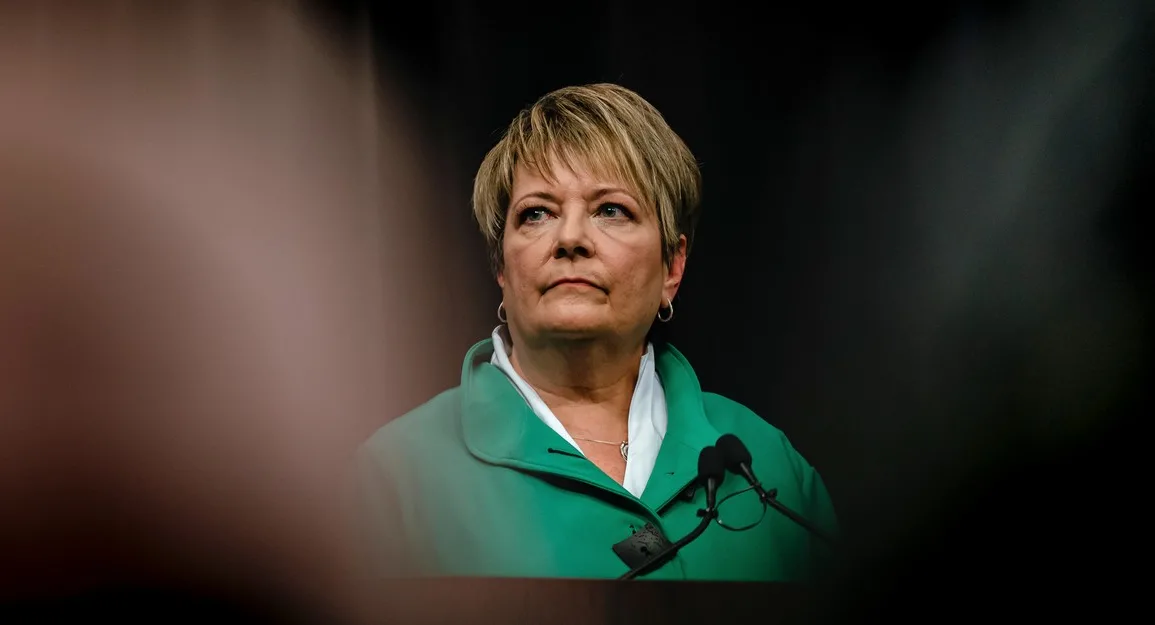
Even as U.S. politics became more contentious and polarized over the past quarter century, a few pockets of the government remained comparatively above the fray, including the courts, which sought to position themselves apart from politics, and state capitols, where pragmatism trumped partisanship.
But those redoubts have fallen in recent years. The Supreme Court has become more ideologically aligned with the Republican Party, and state legislatures host pitched ideological battles. Now institutions that sit at their intersection—state courts, especially state supreme courts—have emerged as a site of bitter fights.
This fall, Republicans in the Wisconsin legislature are mulling plans to impeach Janet Protasiewicz, a recently elected liberal justice on the state supreme court, before she has even heard a case—by all appearances for the crime of having been elected as an outspoken liberal. In North Carolina, Anita Earls, a liberal justice on the state supreme court, has sued the state’s Judicial Standards Commission over an investigation it began into fairly anodyne comments she made about implicit racial bias in a press interview.
These two examples are only the latest in a trend of punishing judges for their rulings or simply for their politics. In 2018, a Pennsylvania Republican sought unsuccessfully to impeach four of the five Democrats on the state’s highest court. In 2022, Ohio Republicans wanted to impeach state-supreme-court chief justice Maureen O’Connor, a Republican and former lieutenant governor, over rulings about redistricting. In Montana, a bill seeks to make the state’s Judicial Standards Commission more partisan and give it more power to levy consequences on judges.
“There seems to be a growing recognition that if you can’t win at the ballot box or change the way the judges are selected in your state, then judicial-ethics mechanisms in the state may be another tool for exerting political pressure on judges,” Douglas Keith, a senior counsel at the Brennan Center for Justice, told me.
One glaring similarity of these cases is that Republicans are behind all of them. Both parties have participated in turning up the partisan heat in state courts. I have cited Protasiewicz’s campaign, which focused on red-meat progressive issues and was heavily funded by out-of-state liberal groups, as a cautionary example of turning everything into politics. Yet GOP lawmakers are going further by attempting to punish their opponents outside of elections. The Brennan Center tracks bills to undermine state courts, and all but one in the most recent survey was in a GOP-led state. (New York is the blue outlier.) Kentucky Republicans passed a law this year allowing cases to be moved away from a court in Frankfort, the capital, essentially to bypass a single judge who has often struck down their moves. In Arizona and Georgia, recent Republican administrations have packed the state supreme courts.
Both the Wisconsin and North Carolina cases fit the trend, but they carry their own peculiar wrinkles. The Wisconsin case is the sort of political train wreck that is common today: foreseeable from a long distance, and yet no one seems able to stop it. Even before Protasiewicz’s April election, Republicans floated the possibility of an impeachment. Now the GOP, which holds gerrymander-bolstered majorities in both houses of the legislature, is poised to follow through. (The governor, Tony Evers, is a Democrat, and the state narrowly backed Joe Biden in 2020, after narrowly going for Donald Trump in 2016.)
Historically, and in very broad terms, candidates for elected judgeships have tended to say little about their specific views, letting their surrogates and—in states with partisan elections—party affiliation speak for them. (Wisconsin judicial elections are nominally nonpartisan.) Protasiewicz and her conservative opponent, Daniel Kelly, jettisoned that, all but running on partisan platforms and signaling their views on redistricting and abortion while drawing national funding. Protasiewicz won the vitriolic campaign by a comfortable 11-point margin.
She was sworn in last month and still hasn’t heard a case, but Wisconsin legislators are now openly discussing impeachment. Conspicuously missing from all of this discussion is the putative justification—and that’s because they’re still searching for one. They’ve argued that her statements violated ethical guidelines, but the state’s judicial-ethics commission rejected that in a letter that Protasiewicz released. They’ve accused her of prejudging cases that might come before her, but none has yet. They’ve also mulled using her acceptance of donations from the state Democratic Party, but the fact is that all but one sitting justice have taken such funds.
Whether or not Protasiewicz’s campaign approach was politically prudent, Republicans have failed to come up with a decent rationale for removing her, which makes clear what the real reason is: A liberal supreme court is an existential threat to conservative politics in the state. If the court throws out the current maps, as expected, it would eliminate the durable, gerrymandered GOP majority in the legislature. It could also loosen restrictions on abortion. Impeachment of state-court judges is relatively rare in the U.S., and it has historically been used in cases of clear misconduct. Using it to punish politics would be a shift, and one that would endanger the court’s ability to act as a check on the legislative and executive branches.
Robin Vos, the Republican speaker of the house, did not reply to a request for comment. If Protasiewicz were impeached, she would be suspended pending a senate trial, but Devin LeMahieu, the GOP leader in the senate, has said the body wouldn’t take up impeachment. That has led to speculation that Protasiewicz might be left in limbo—unable to rule, but neither convicted nor cleared—and the court with a 3–3 partisan deadlock, in clear contravention of voters’ wishes.
What is happening in North Carolina is stranger, if not quite so dramatic. Some history is helpful: Battles over voting, including maps and election laws, have been the defining theme of North Carolina politics for the past decade and a half, since Republicans took control of the legislature. Earls, a Black woman, for years led the Southern Coalition for Social Justice, a major legal opponent of Republican moves on voting laws. In 2018, she was elected to the supreme court, running as a Democrat in a partisan race. It was the first time since 2004 that supreme-court elections were partisan, owing to a change made by the GOP-led government.
Following the 2020 census, North Carolina Republicans enacted maps that were likely to give 10 of 14 U.S. House seats to the GOP, even though the two parties tend to garner similar portions of the aggregate vote. The state supreme court, then dominated by Democrats, rejected the maps as an unconstitutional partisan gerrymander in spring 2022. Republicans then recaptured control of the supreme court in the fall, and reversed the decision. (The legislature, meanwhile, had appealed to the U.S. Supreme Court under the so-called independent state legislature theory; the justices rejected their argument.) The new Republican chief justice also overhauled many other procedures at the court.
An atmosphere of acrimony has come to pervade the court. But although partisanship is par for the course today, employing ethics complaints as a partisan weapon is not. The state’s Judicial Standards Commission, which is chaired by a Republican judge and includes judges from both parties as well as attorneys, received an anonymous complaint accusing Earls of improperly commenting on a case. After an investigation, the commission dismissed the complaint. Then, in June, Earls gave an interview to Law360 discussing race and diversity in the courts. The commission informed Earls that it was reopening its investigation “based on an interview … in which you appear to allege that your Supreme Court colleagues are acting out of racial, gender, and/or political bias in some of their decision making.”
I read the interview with interest, curious to see what the inflammatory comments were, but emerged baffled. In one passage, Earls said her newly elected colleagues “very much see themselves as a conservative bloc. They talk about themselves as ‘the conservatives.’ Their allegiance is to their ideology, not to the institution.” In another, she said implicit bias was in play in the very white and male group of lawyers who argue before the court. “I’m not suggesting that any of this is conscious, intentional, racial animus,” Earls said. “But I do think that our court system, like any other court system, is made up of human beings and I believe the research that shows that we all have implicit biases.”
Although it’s easy to imagine conservatives disliking and disagreeing with this argument, the concept of implicit bias is by now so established and common as to be nearly banal. Beyond that, ruling such comments out of bounds seems absurd given that justices are partisan officeholders elected in political campaigns. The commission does not appear to have issued sanctions for similar instances—most of its rulings involve clear misconduct—and Earls’s lawsuit argues other states don’t offer relevant precedents either. In an emailed statement, the Judicial Standards Commission’s executive director noted, “The Commission is statutorily obligated to investigate all instances of alleged judicial misconduct and cannot comment on pending investigations.”
The experts I spoke with couldn’t imagine any serious sanction emerging from the investigation—certainly not removal or suspension, which are within the commission’s ambit. Even so, Earls decided to sue the commission, alleging “a series of months-long intrusive investigations” that infringe on her First Amendment rights and asking a court to block the investigation. Why bother, I asked her attorney, Press Millen, if punishment was unlikely?
“She can’t keep doing this forever,” he told me, citing the time and effort involved in responding to the investigation. And he said the specter had already led her to turn down invitations to write an article for a national magazine and to a symposium on state courts because she doesn’t know what speech the commission might or might not abide. “Normally when you hear people talk about chilling of free speech it’s always in an abstract and hypothetical way. Not here.”
Bob Orr, a former Republican justice on the North Carolina Supreme Court, told me that the judicial-standards process is “fundamentally broken.” Orr clashed with the commission as a judge, and as an attorney has defended judges involved in investigations. (Orr left the Republican Party over its Trump-era changes.) “I’ve known a lot of members on the panels over the years. They’re good people. They’re trying to do what’s right,” he said. But he said the commission’s structure is opaque, unclear, and unfair to accused judges, who don’t know who filed a complaint, how an investigation was initiated, or how it’s conducted, and have little recourse at the end.
Such a black box lends itself to abuse—and certainly to the perception of abuse—along political lines. “If I were a certain kind of political opponent of hers, she would be a manifestation of one of the most terrifying things imaginable to me: an extremely capable and accomplished African American woman,” Millen told me. The circumstances of the complaint into Earls, similar to the other assaults on state courts elsewhere, make that appear to be the most likely motivation.


